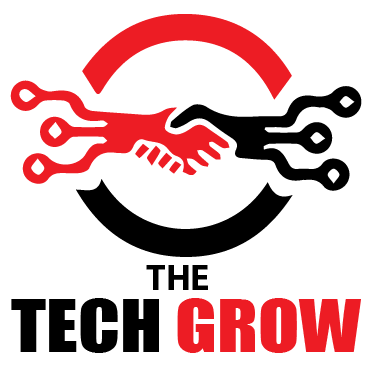
Introduction
To keep Search and Maps up to date with the most recent data about organizations, locations, and neighborhood attractions, Google relies on a community of committed volunteers worldwide. These people are called Local Guides. Google Local Guides will likely offer the details required to make informed judgments when visiting a new location and looking up information about hotels and restaurants. That is almost true. In exchange for their services, Local Guides do get virtual incentives. Google created the Local Guides initiative to encourage ordinary people to contribute to the upkeep of Maps. Examining the accuracy of the given data provided by businesses is another responsibility of local guides.
Google City Experts is a project to promote and reward adding evaluations and images to Google Maps that was introduced by Google in 2013. That program had a high entry barrier and was only available in a few metropolitan cities. As a result, Google Local Guides was created in 2015 with a broader focus and the same goal.
The Local Guide program is open to everyone, so if you already write evaluations for Google Maps, you could get some credit for it.
What Is The Program For Google Local Guides?
By adding to Google Maps and Google Business Profiles, users can earn prizes through the Google Local Guide program, which has been gamified. For each contribution that you make as a Google Local Guide, you get points. You can advance to new program levels and unlock new badges after earning a predetermined number of points. When you post a review or respond in Google Maps, your badge is shown next to your name so that everyone can see you are a local authority. With the Google Local Guides Program, you may use Google Maps to share your expertise about a location with the world to assist others who are already visiting or plan to visit the shared locations.
The locations include tourist attractions (such as parks, museums, monuments, places of worship, and the like), hospitals, hotels, shops, offices, malls, industries, or any other location that the general public must visit. “Knowledge” has been separated into seven activities, according to the Google Local Guides program:
- Discover new locations adding additional locations.
- Review the location
- A location’s star rating
- Add a new image of the location.
- Respond to inquiries about the location.
- Edit or edit a place’s information.
- Verify whether the information displayed is accurate (such as the names, addresses, phone numbers, and website addresses).
- Depending on what the position permits, a Local Guide may undertake one or numerous activities at a time.
- For instance, a Google reviews only facilitates three activities of star rating, writing a review, and uploading images.
Levels, Points, and Badges
The contributions listed below to Google Maps can get you points:
- Review the product – 10 points.
- 200+ character reviews are required for 20 points.
- Give a company one point.
- 5 points for uploading a photo
- Identify a picture – 3 points.
- A video upload earns 7 points.
- 3 points for answering questions and answers
- Add clarification – 5 points.
- Add a spot and 15 points.
- Fifteen points for adding a road.
- Verify a fact for one point.
- Publish a list of those who are eligible – 10 points.
- Five points for putting the information in bullets.
- Fifteen points for adding a road.
- Verify a fact for one point.
- Publish a list of those who are eligible – 10 points.
You will advance to higher levels as you accumulate points in the Local Guides program. When your name flashes in Google Maps, a badge will be visible next to it if you reach level four and higher. The Local Guides Program is divided into the following levels:
- Level 1 has a score of 0
- Fifteen points for Level 2.
- level three – 75 points
- Two hundred fifty points at level four.
- Five hundred points for Level 5.
- One thousand five hundred points for Level 6.
- 5,000 points for level 7,
- 15,000 points for Level 8
- Fifty thousand points for Level 9.
- 10th level: 100,000 points
High-level Local Guides in the past were eligible for benefits from Google, like free cloud storage and savings at the Google Play store. As the service expanded, Google gradually eliminated the extras and today provides badges. This is not fixed that Local Guides will always have early access to new Google features.
From Level 1 to Level 10, achieving higher levels results from accumulating more points. As soon as a Local Guide reaches Level 4, badges must be connected to the profile photo. There will also be promotions that Local Guides at higher levels can take advantage of. The illustration below demonstrates the several levels Local Guides can reach and the points they can accumulate by adding material to Google Maps. Levels 6 through 10 were previously unavailable, but Google has now made them available to attract additional local guides, especially the already-existing Local Guides.
How can you Sign Up For The Google Local Guides Program?
- Go to the Google Local Guides registration page and select “Get Started.”
- Tap on “Become a Local Guide” and type in the name of your city.
- Contribute to Google Maps to begin earning points. Like the one above, you may monitor your points and advancement to the next level in the dashboard.
- If you allow Google to examine your location history, you will get suggestions for reviewing places based on your travels. However, location history tracking is not needed to be enabled to take part in Local Guides. You can always manually search for locations and add information to them.
Conclusion
By completing a brief enrollment process, which is accessible to anybody with a Google account, you can become a Google Local Guide. The Local Guides program is Google’s method of thanking folks who consistently update Maps and Business Profiles with reliable data, engaging images, and insightful evaluations. It is another approach to strengthen your online presence and stand out in the top global search engine.








